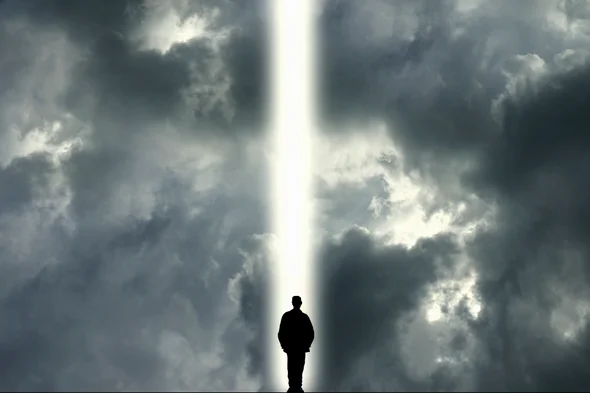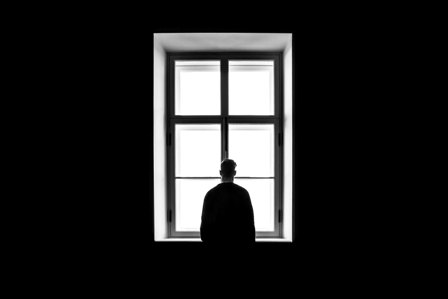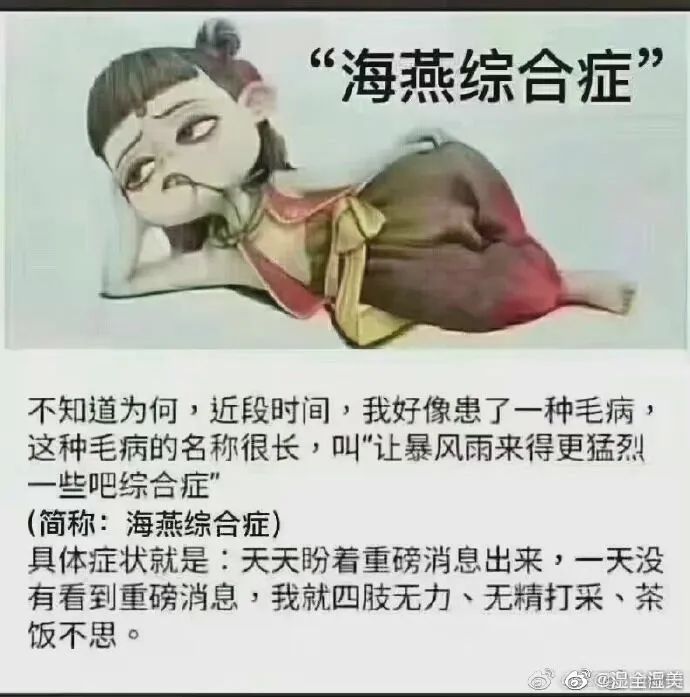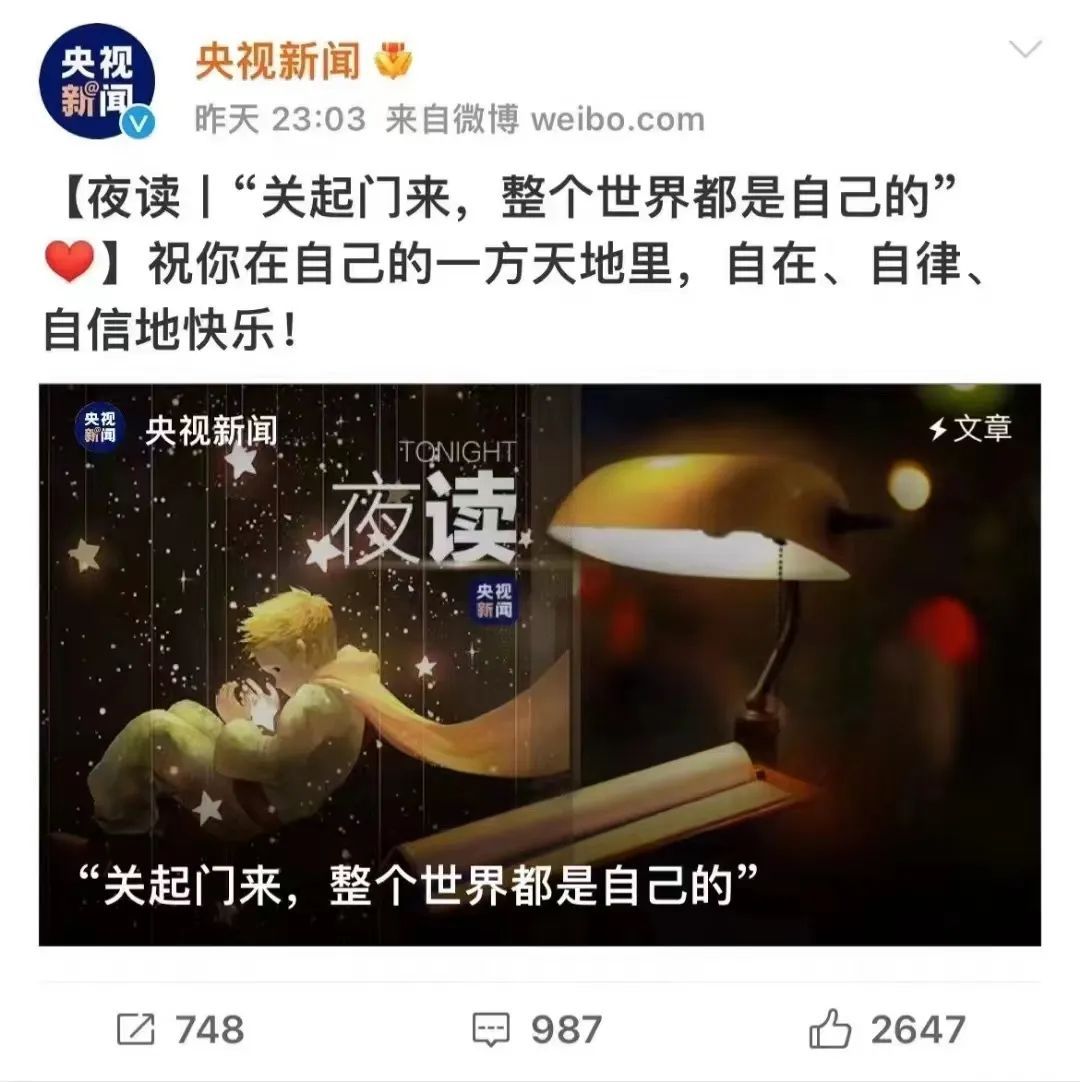It doesn't matter if the world gets better

Been in a cage for over 50 days. From time to time, friends from other places come to ask me: When will you be liberated? Or say something in relief: I wish you an early unblocking.
To be honest, this is not to be expected.
Of course, I know they are all well-intentioned, but if you are like me, when you closed the community on March 24, it was only two days, and after experiencing all kinds of changes in rhetoric, you will understand that this hope is nothing but a Unreal wishful thinking. It doesn't have much to do with what you do, there's no hope, it's like a cold deity, indifferent even to devout prayers. At the end of the day, it's self-respecting for an independent person.
Hope is a good thing, but only if we can control that hope ourselves. An erratic thought that is completely out of our control is not hope, but closer to "luck". Living under random risk, the so-called "hope" is like an ant doing its best to think about whether it will not be trampled to death by an elephant next time.
This is not just my whim. If you look around carefully, you may also find that under the unprecedented strict control, more and more people have come to their senses. If everything you work hard can be changed beyond recognition in an instant, your house will be broken into and destroyed at will, and even if you are worth hundreds of millions, it will not be yours in the end, then what's the point of working hard? Might as well have fun in time.
People are rightly aware that the tidal wave under which they live is churning, and that even if the tsunami ebbs, it could come back at any time. In "Submerged and Saved," Primo Levi wrote that ordinary people of that era found their lives vulnerable:
The means the Nazis dominated and used were so economical and easy to use - malnutrition, deprivation of liberty, and other bodily ailments that quickly disintegrated and paralyzed them before they were destroyed, especially after years of suffering. Isolation, humiliation, abuse, forced marches, tearing of family ties, elimination of contact with the outside world...

Of course, most people will get through it. Sooner or later, Shanghai will lift its lockdown, and it's only a matter of time before the streets return to bustling scenes, there's no doubt about that. This city has suffered even more damage. Even if half of the people die, they will still be reborn. The only question is how long it will take, how many people can survive, and whether it is me who survives.
For many, however, that no longer makes sense because the life they knew, and the sense of security on which that life was based, has been destroyed. Someone said to me: "Many times, a slight turn in history is a long life for many people. The light will come, but the night has buried many people's lives." She was right.
In the past two years, people in Europe and the United States have often complained that "the pandemic has narrowed our horizons" ("the pandemic has narrowed our horizons"). Whether it is at the individual level or the group level, the epidemic is promoting a certain kind of internalization: it reduces. It reduces the interaction between people and countries, compresses the space for individual activities and exchanges, and greatly increases the unpredictability of the future. People's life vision is forced to turn from the outside to the inside, and the insecurities and risk aversion tendencies are also increasing day by day.
Borrowing from Liu Zijian's discussion of the social and cultural turn of the Song Dynasty, we may be witnessing "China turns inward". For those who uphold this new spirit, the urge to acquire external material under the slogan of "getting rich is glorious" in earlier years has transformed into a mature indifference, a kind of detachment, even before it is obtained. Cynic.
It's hard to stop laughing when you see the absurdity of the pretentious busyness on stage. "Life is an absurd story told by idiots, full of noise and commotion, and meaningless." It was a tragedy, a show, and it's a shame that we all spent so much for this show We, who are both the audience and the actors, have no way to quit.
The people are tired. Just like a rubber band, it loses its elasticity after being stretched and tossed for a long time. The more you see it, the harder it will be to be surprised, let alone moved. If you ask young people seriously, you will find that under their seemingly submissive appearance, the real thinking is: whatever, you are happy, I don't care at all.

To be precise, such a mentality appeared before the epidemic, but it is often only seen in those sensitive minds, who are like canaries in the mine, capturing the emptiness brought about by alienation in advance, and that is precisely because of them. Realize better than anyone else that people are not living the life they want. This kind of philosophical mental distress is regarded as a brand new disease - "hollow disease".
It may not be long before parents realize that the real headache is not people's resistance, but their overall low enthusiasm -- they used to be afraid of people's positivity and will soon worry about their negativity.
A civil servant friend said that he also understands the distress and dissatisfaction of many people. Well, "I hope there will be more dissatisfied, confident and quality people who are willing to devote themselves to the field of public service." Enthusiasm and concern for the public sphere also evaporated." In fact, there is no need to wait until the epidemic is over, and now people's enthusiasm has been greatly diminished.
In this sense, the social mentality change promoted by this blockade is something no public intellectual can do: let more people turn to themselves and look at public politics from a new perspective. After the collapse of credibility, a spirit of questioning based on oneself appeared: for the official grand discourse, first doubt, unless it can be confirmed later.
A few days ago, a reader sent me a private message and said, "After this epidemic, it doesn't matter whether the world is better or not. Just respect your own ideas and not be fooled." He expressed the thoughts of many people: that kind of Confidence in the outside world and in the continuous improvement of the future has been severely damaged, and I don't care, and instead stick to my heart. Since it is precisely because of hope that it is painful, then if you simply leave it alone, you will be rigid without desire.
A friend said that now she only thinks about how to let the child go out and stay, "I can be the last generation with peace of mind. The phrase 'I am the last generation' really makes me feel uncomfortable. This is the last concern, let me If you give up, you can do whatever you want."

But wait, does that make us in turn unwittingly complicit? When you see the central media saying "I wish you happiness, self-discipline, self-confidence and happiness in your own world", you may instinctively wonder if this is a siren's song. That "close the door, the whole world is yours" is more like a metaphor for our current environment than our real life situation - in reality, you can be broken in at any time.
The subtlety here is that there seems to be only a fine line between the semblance of "quiet time" that serves control and the self-esteem that sticks to one's heart. What is important here may not be to completely abandon the outside world, let alone cut off the connection with the outside world, but to see the reality clearly in a turbulent era and see who you really are.
Now is the time to defend your values. More than once, I have heard someone say that friends and relatives who used to have a good relationship have quarreled, and sometimes they didn't even say anything violent, and they were suddenly blocked. In the current situation, those who once believed in domestic practices may be particularly frustrated, unable to convince others, and unwilling to be persuaded by others, after all, subverting their own metacognition is a painful thing. That kind of blocking may seem offensive, but it can be defensive in nature - however, the defense itself means that you have been shaken.
If this leads to introspection, it also means a massive "self-enlightenment": figure out what you want, because what one chooses in life ultimately depends on what you can't give up the most. That's not just ticking off the "break up" list, it means being forced to turn to a whole new understanding of who I am: Who do I want to be in my entire life?
We can still have hope, but it must be in ourselves and not in any external force, because they are all unreliable. Putting aside those unnecessary worries, we should pursue the possibility of life as much as possible and do what we want to do in our short decades of life.
Shirley Jackson once said in her novel: "No living organism can remain sane for long under conditions of absolute reality. Some people think that even larks and grasshoppers can dream." Maybe it doesn't care if the world will get better, but in the short time it is alive, it can also dream.
Like my work? Don't forget to support and clap, let me know that you are with me on the road of creation. Keep this enthusiasm together!


